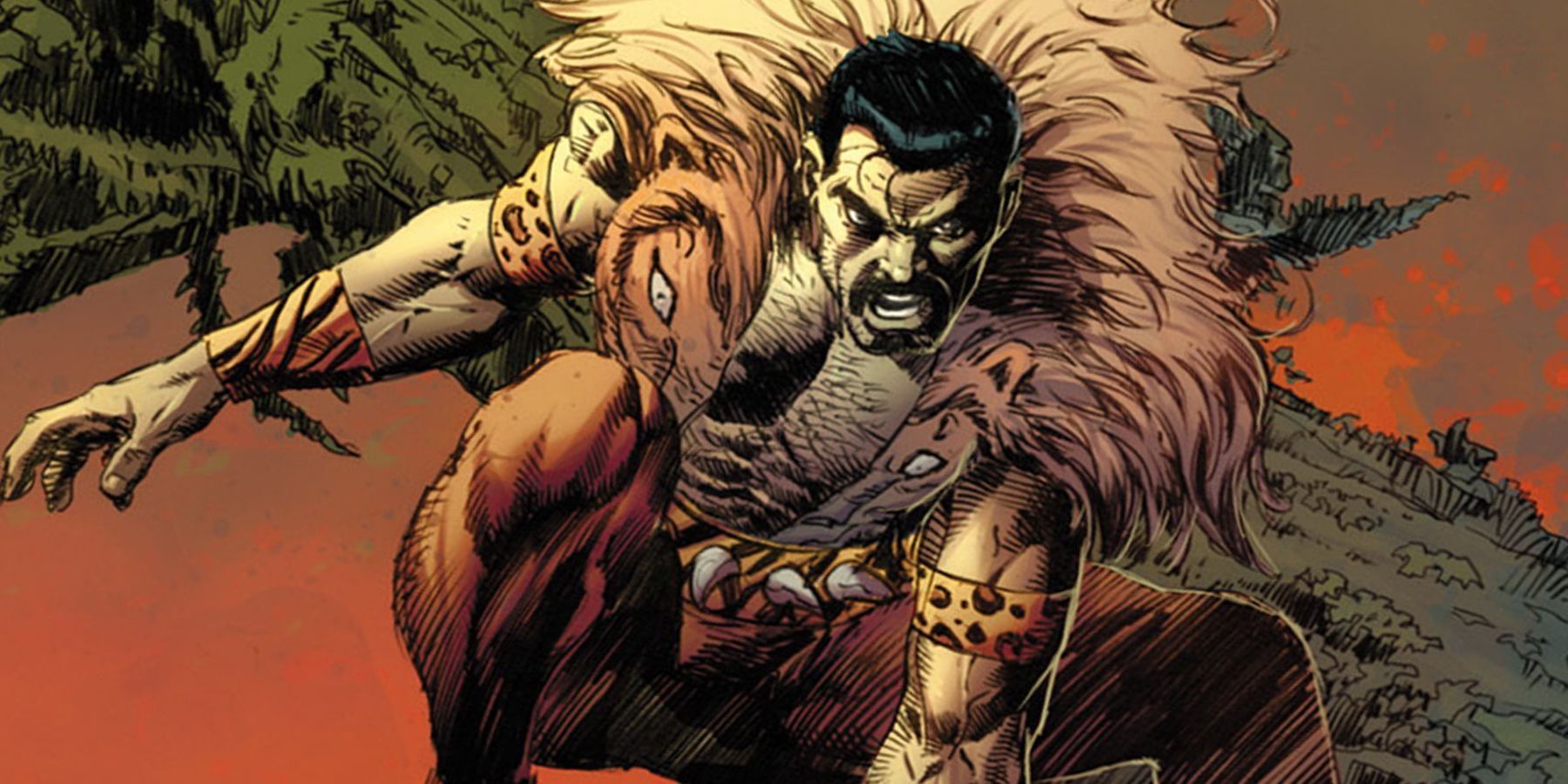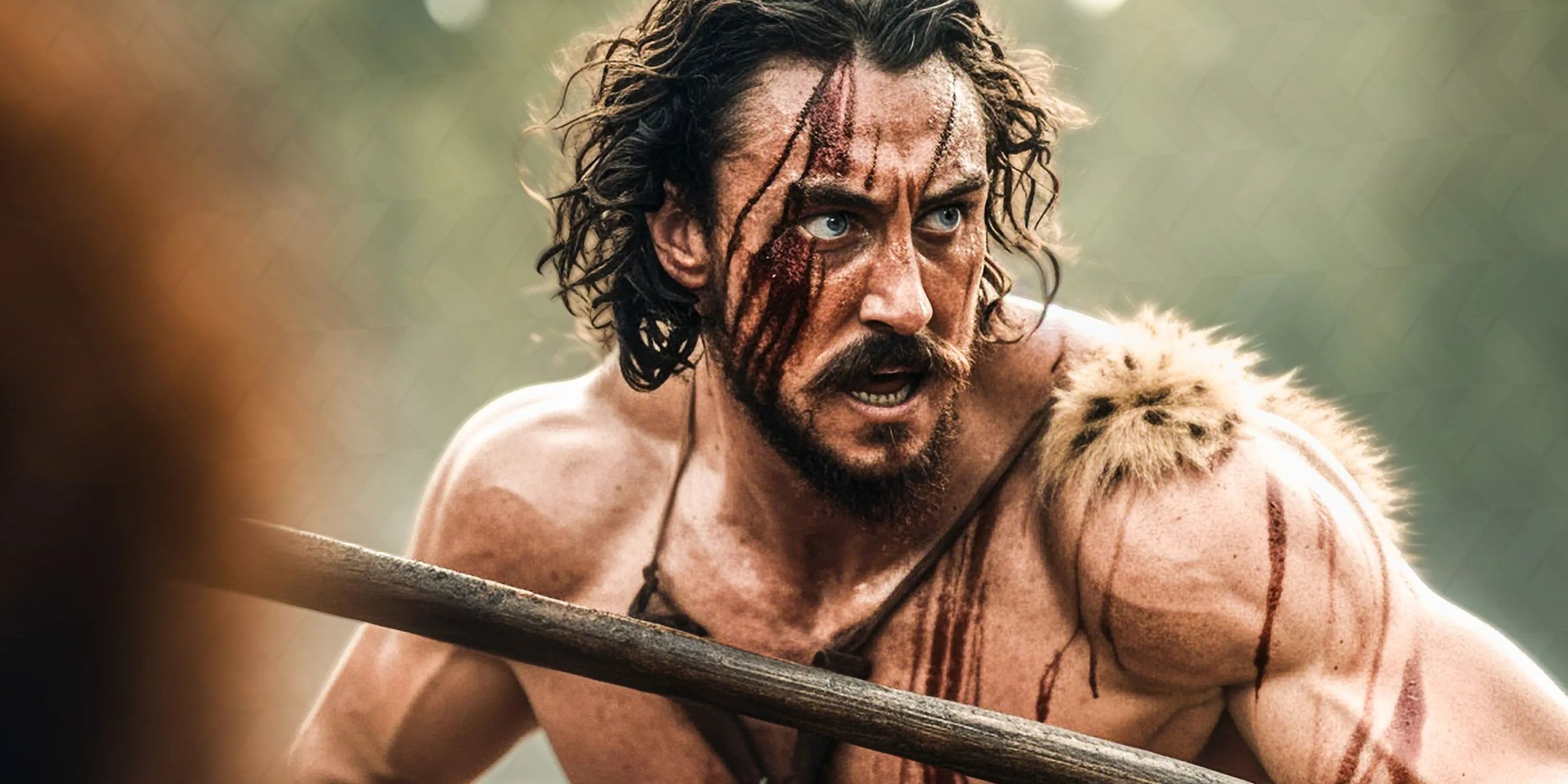
The Untold Secrets Behind Kraven The Hunter's Incredible Big-Screen Debut

Unleash the thrill of Kraven the Hunter's long-awaited arrival on the silver screen, as the relentless predator finally sets his sights on cinematic glory
In blockbuster cinema, artistic decisions often take a backseat to the interests of wealthy IP holders. Many beloved projects have faced compromises and interference by the owners of the characters. This includes intense battles over comic book icons among different studios. Even lesser-known characters like Kraven the Hunter have become pawns in this frustrating game.
Kraven is the latest Spider-Man villain to receive his own solo film as part of Sony's struggling cinematic universe. This film is a desperate attempt to regain control of the franchise before it spirals further downhill. With fans growing skeptical of each new project and becoming increasingly aware of the conflicts happening behind the scenes, it is important to examine the sacrifices made by Sony to bring Kraven the Hunter to life.
Every planned appearance of Kraven the Hunter
Sony announced the upcoming Kraven the Hunter in early 2019, with Richard Wenk, the writer of Equalizer 2, hired to create the script. This is not the first attempt to bring Kraven to the big screen. Sam Raimi, a decade ago, planned to include the character in his fourth Spider-Man movie. Raimi expressed his desire to see Spider-Man face off against Kraven, although he ultimately faced script issues and left the project, leading to Sony's reboot in 2012. The 2014 sequel teased Kraven and set up the Sinister Six with him as a crucial member, hinting at a potential Kraven the Hunter film.
Sony envisioned Kraven as part of its own cinematic universe, the SSU, from the beginning. However, they were not alone in their interest in the character. Jon Watts, the director of Spider-Man: Homecoming and Far From Home, pitched the idea of bringing Kraven into the Marvel Cinematic Universe for the third MCU Spider-Man film. Watts wanted to explore lesser-known comic book villains on the screen. Despite his desire, Marvel chose to focus on No Way Home, a multiverse storyline, instead of introducing new cinematic portrayals. It's ironic to see Marvel prioritize resurrecting old characters over breathing life into new ones.
Perhaps most interestingly, Ryan Coogler, the director of Black Panther, has expressed interest in featuring Kraven the Hunter in T'Challa's debut in the Marvel Cinematic Universe (MCU). However, Coogler has never publicly mentioned Kraven's potential role in the film, as his desire to include the villain was swiftly dismissed. Coogler drew inspiration from a 1999 Black Panther comic titled "Hunted" by Christopher Priest, where Kraven is hired by T'Challa's adopted brother, Hunter the White Wolf. In this comic, an altercation between Kraven and T'Challa takes place in a kitchen, leading to a brief fight. Later on, the Black Panther fiercely confronts Kraven on the street, overpowering him so severely that the Avengers intervene and remove T'Challa from the scene. Although the two characters have crossed paths in various instances, even collaborating to protect endangered animals, this encounter struck a chord with Coogler. Unfortunately, he was promptly informed that using Kraven in the film was not an option, therefore keeping the character out of the MCU.
Why hasn’t Kraven the Hunter been in a movie?
The reason for Raimi's version of Kraven never making it to the screen was that Sony owned the rights to the character. Raimi's fourth Spider-Man film got cancelled, and he voluntarily stepped away from the project after struggling to find a clear direction. Meanwhile, at Marvel Studios, Watts and Coogler expressed their interest in using Kraven. However, since Kraven is owned by Sony, Marvel had to work out a deal with them to include the character. The rights to Spider-Man have changed hands multiple times - initially in 1985 when superhero movies were considered risky investments, and then again in 1999 when Marvel sold the rights to Sony. As a division of Sony Pictures, Columbia Tristar produced Raimi's Spider-Man films. This ownership battle over characters like Kraven is significant for Sony, as each character they retain is a valuable asset that their competitors cannot utilize. The well-known tussle over Peter Parker almost derailed the production of "No Way Home" before it even began. Thanks to Tom Holland's portrayal and the unwavering support of fans, Marvel was able to deliver the most impressive Spider-Man trilogy to date, partly due to Sony's reduced involvement. Unfortunately, characters like Kraven do not share the same fortune.
Sony's decision to prevent the creation of a Kraven the Hunter film by directors Sam Raimi, Jon Watts, or Ryan Coogler highlights the ongoing battles between wealthy companies vying for financial gains from their respective superhero franchises. This situation serves as a negative reminder of the diminishing creativity within the industry, especially as even Marvel's dominant empire shows signs of decline and audiences grow weary of CGI-filled movies. Thus, the prospect of watching studios produce yet another superhero film that essentially portrays corporate negotiations becomes increasingly uninteresting.









